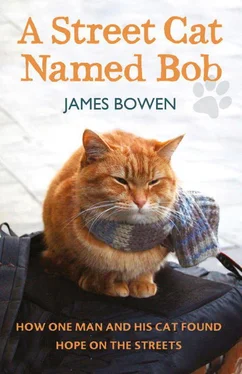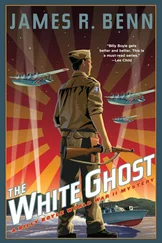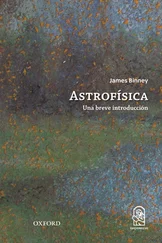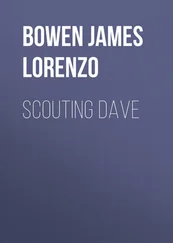It started quietly enough. The Air China flight to Beijing took eleven hours and was uneventful. I watched the in-flight movie and had a meal but I found it hard to sleep because I wasn’t feeling fantastic. It was partly because of my medication but partly also because of the damp London weather. Maybe I’d spent too many hours selling the Big Issue in the pouring rain. I had a horrendous cold and kept sneezing all the way through the flight. I got a few funny looks from the air stewardesses and some of my fellow passengers when I had a bad attack, but thought nothing of it until we landed in Beijing.
As we taxied towards the terminal, there was an announcement from the captain over the tannoy. It was in Chinese first but there was then an English translation. It basically said that we should stay in our seats until we were asked to leave the plane.
‘Odd,’ I thought.
The next thing I saw was two uniformed Chinese officials wearing facemasks. They were walking down the aisle – straight towards me. When they got to me, one of them produced a thermometer.
An air stewardess was standing there to translate. ‘These men are from the Chinese government. They need to take your temperature,’ she said.
‘OK,’ I said, sensing this wasn’t the time to argue.
I opened wide and sat there while one of the officials kept looking at his watch. After they’d muttered something in Chinese the air hostess said: ‘You need to go with these men to undergo some routine medical checks.’
It was 2008 and we were at the height of the swine flu scare. China, in particular, was being incredibly nervous about it. I’d watched a report on the news a few days earlier in which they’d talked about the way people were being turned away from China if there was the slightest hint of them being infected. A lot of people were being placed in quarantine and held there for days.
So I was a bit apprehensive as I walked off with them. I had visions of me being holed up in some Chinese isolation ward for a month.
They ran all sorts of tests on me, from blood tests to swabs. They probably found all sorts of interesting things – but they found no trace of swine flu, SARS or anything else contagious. After a couple of hours, a mildly apologetic official told me that I was free to go.
The only problem was that I now had to make my way back to my connecting flight and I was lost inside the humongous, hangar-like space that is Beijing airport.
I had about three hours to find my luggage and my connecting flight. It had been years since I’d spent any time in an airport terminal. I’d forgotten how big and soulless they were, and this one was especially so. I had to take a train from one part of Terminal 3 to another part.
After a few wrong turns I found my connecting flight less than an hour before it was due to take off.
I breathed a huge sigh of relief when I sank into my seat on the plane and slept like a log on the flight to Melbourne, mainly through exhaustion. But then at Melbourne I hit another snag.
As I made my way through the customs area I was suddenly aware of a Labrador dog sniffing animatedly at my luggage.
‘Excuse me, sir, would you mind coming this way with us,’ a customs guard said.
‘Oh God,’ I thought. ‘I’m never going to get to meet my mother.’
I was taken to an inspection room where they started going through my stuff. They then ran an electric drug detector over my bag. I could tell there was a problem from the expressions on their faces.
‘I’m afraid your luggage has tested positive for cocaine,’ the guard said.
I was gobsmacked. I had no idea how that was possible. I didn’t take cocaine and didn’t really know anyone who did. None of my friends could afford it.
As it turned out, they said that it wasn’t illegal for me to have traces of it for private use.
‘If you are a casual user and it’s for private consumption all you have to do is tell us and you can be on your way,’ the guard said.
I explained my situation. ‘I’m on a drug recovery programme so I don’t take anything casually,’ I said. I then showed them a letter I had from my doctor explaining why I was on Subutex.
Eventually they had to relent. They gave me a final pat down and released me. By the time I emerged from the customs area, almost an hour had passed. I had to get another flight down to Tasmania, which took another few hours. By the time I got there, it was early evening and I was utterly exhausted.
Seeing my mother was wonderful. She was waiting at the airport in Tasmania and gave me a couple of really long hugs. She was crying. She was pleased to see me alive, I think.
I was really happy to see her too although I didn’t cry.
The cottage was every bit as lovely as she’d described it in her letter. It was a big, airy bungalow with huge garden space at the back. It was surrounded by farmland with a river running by the bottom of her land. It was a very peaceful, picturesque place. Over the next month I just hung out there, relaxing, recovering and rebooting myself.
Within a couple of weeks I felt like a different person. The anxieties of London were – literally – thousands of miles away, just over ten thousand, to be precise. My mum’s maternal instincts kicked in and she made sure I was fed well. I could feel my strength returning. I could also sense me and my mother were repairing our relationship.
At first we didn’t talk in great depth about things, but in time I began to open up. Then one night as we sat on the veranda, watching the sun go down, I had a couple of drinks and suddenly it all came out. It wasn’t a big confession, there was no Hollywood drama. I just talked … and talked.
The emotional floodgates had been waiting to burst open for a while now. For years I had used drugs to escape from my emotions, in fact to make sure I didn’t have any. Slowly but surely I’d changed that. And now my emotions were coming back.
As I explained some of the lows I’d been through over the last ten years, my mother looked horrified, as any parent would have done.
‘I guessed you weren’t doing so great when I saw you, but I never guessed it was that bad,’ she said, close to tears.
At times she just sat there with her head in her hands muttering the word ‘why’ every now and again.
‘Why didn’t you tell me you’d lost your passport?’
‘Why didn’t you call me and ask for help?’
‘Why didn’t you contact your father?’
Inevitably, she blamed herself for it. She said she felt like she’d let me down, but I told her I didn’t blame her. The reality was that I had left myself down. Ultimately, there was no one else to blame.
‘You didn’t decide to sleep in cardboard boxes and get off your face on smack every night. I did,’ I said at one point. That set her off crying as well.
Once we’d broken the ice, so to speak, we talked much more easily. We talked a little about the past and my childhood in Australia and England. I felt comfortable being honest with her. I said that I’d felt she’d been a distant figure when I’d been younger and that being raised by nannies and moving around a lot had had an impact on me.
Naturally that upset her, but she argued that she’d been trying to provide an income for us, to keep a roof over our heads. I took her point, but I still wished she’d been there more for me.
We laughed a lot too; it wasn’t all dark conversation. We admitted how similar we were and chuckled at some of the arguments we used to have when I was a teenager.
She admitted that there had been a big conflict of personality there.
‘I’m a strong personality and so are you. That’s where you get it from,’ she said.
But we spent most of the time talking about the present rather than the past. She asked me all sorts of questions about the rehab process I’d been through and what I was hoping to achieve now that I was almost clean. I explained that it was still a case of taking one step at a time, but that, with luck, I’d be totally clean within a year or so. Sometimes she just simply listened, which was something she hadn’t always done. And so did I. I think we both learned a lot more about each other, not least the fact that deep down we were very similar, which is why we clashed so much when I was younger.
Читать дальше












